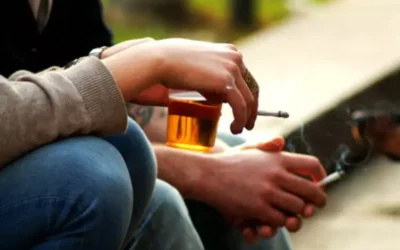The hallmark of CBT is collaborative empiricism and describes the nature of therapeutic relationship. At start of therapy, Rajiv was not confident of being able to help himself (self-efficacy and lapse- relapse pattern). Fortunately, professional treatment for addiction can improve outcomes for people experiencing the Abstinence Violation Effect.

As a result, it’s important that those in recovery internalize this difference and establish the proper mental and behavioral framework to avoid relapse and continue moving forward even if lapses occur. It includes thoughts and feelings like shame, guilt, anger, failure, depression, and recklessness as well as a return to addictive behaviors and drug use. AVE describes the https://ecosoberhouse.com/ negative, indulgent, or self-destructive feelings and behavior people often experience after lapsing during a period of abstinence. According to Beck et al., (2005), “A cognitive therapist could do hundreds of interventions with any patient at any given time”1). A careful functional analysis and identification of dysfunctional beliefs are important first steps in CBT.
What Is The Abstinence Violation Effect (AVE)?
For present purposes we define relapse as a setback that occurs during the behavior change process, such that progress toward the initiation or maintenance of a behavior change goal (e.g., abstinence from drug use) is interrupted by a reversion to the target behavior. We also take the perspective that relapse is best conceptualized as a dynamic, ongoing process rather than a discrete or terminal event (e.g., [1,8,10]). Negative emotional states, such as anxiety, depression, anger, boredom are often dealt with by using substances, interpersonal conflicts that the person cannot cope with effectively or resolve and the social -pressure to use a substance31. Others high risk situations include physical states such as hunger, thirst, fatigue, testing personal control, responsivity to substance cues (craving).
Jim is a recovering alcoholic who successfully abstained from drinking for several months. One day, when he was faced with a stressful situation, he felt overwhelmed, gave in to the urge, and had a drink. I have lost all that time,” which can trigger a self-destructive mindset and potentially lead to further relapse.
Physical Relapse
The following section reviews selected empirical findings that support or coincide with tenets of the RP model. Because the scope of this literature precludes an exhaustive review, we highlight select findings that are relevant to the main tenets of the RP model, in particular those that coincide with predictions of the reformulated model of relapse. In order to cope or avoid these damaging thoughts, https://ecosoberhouse.com/article/the-abstinence-violation-effect-meaning-when-recovering/ these individuals turn back to drugs or alcohol to numb the pain. This model notes that those who have the latter mindset are proactive and strive to learn from their mistakes. To do so, they adapt their coping strategies to better deal with future triggers should they arise. This protects their sobriety and enhances their ability to protect themselves from future threats of relapse.
